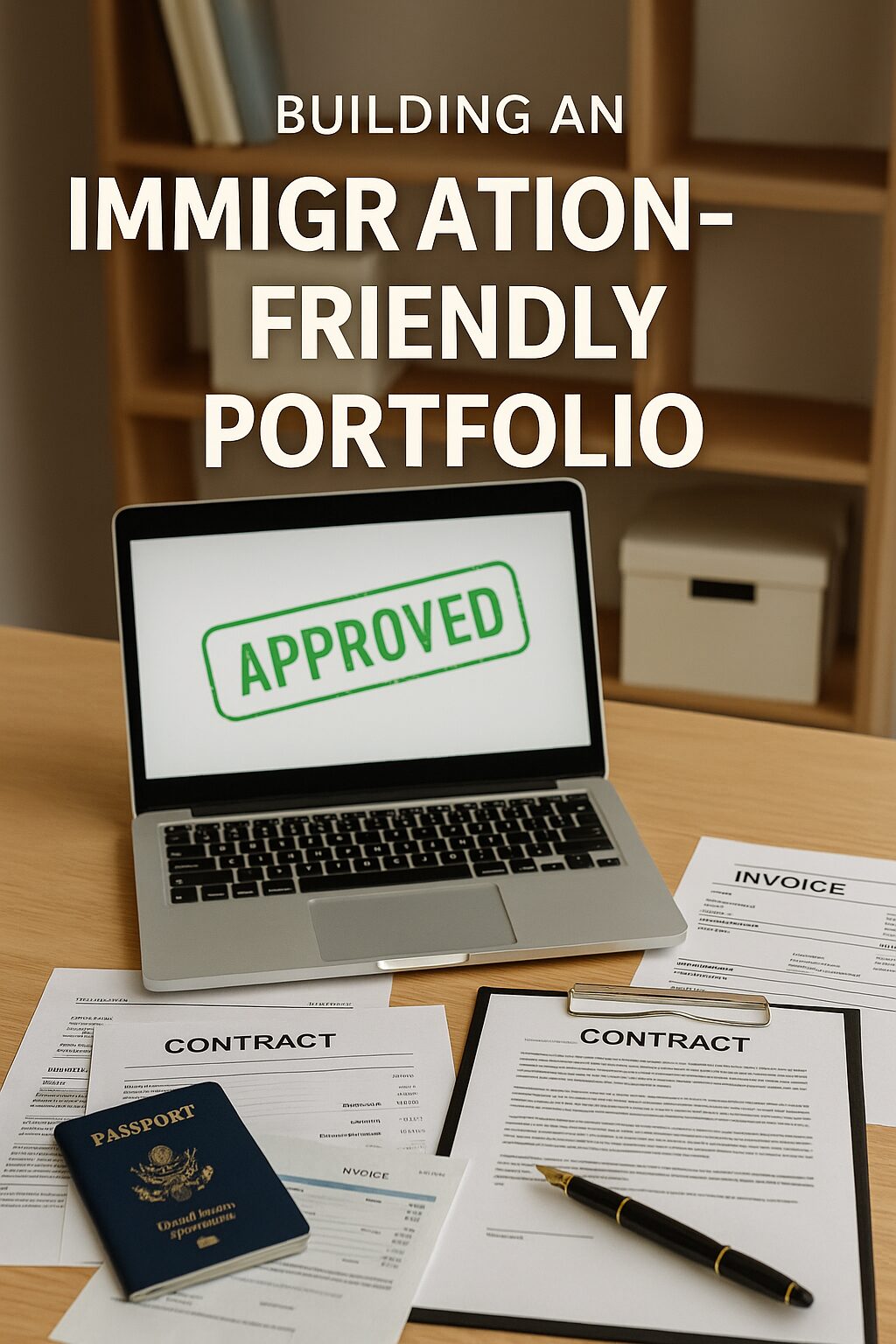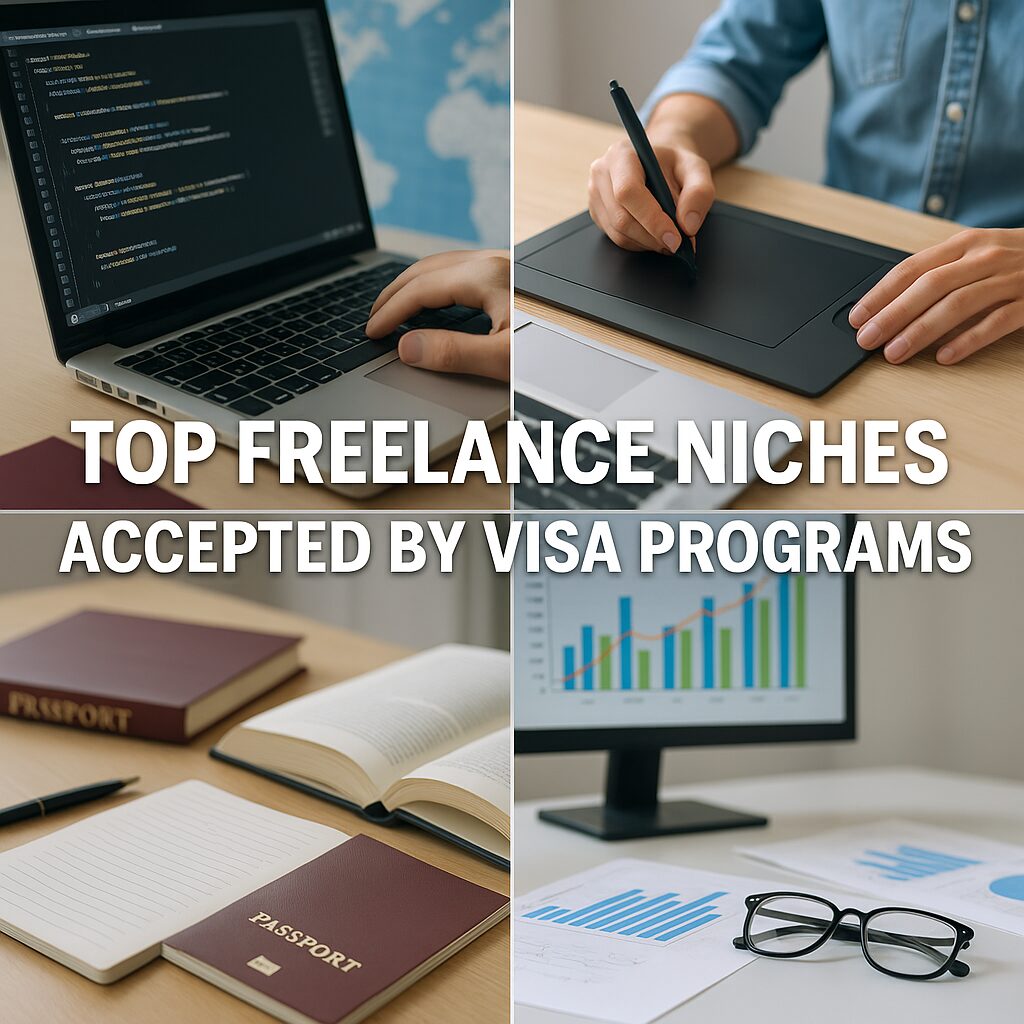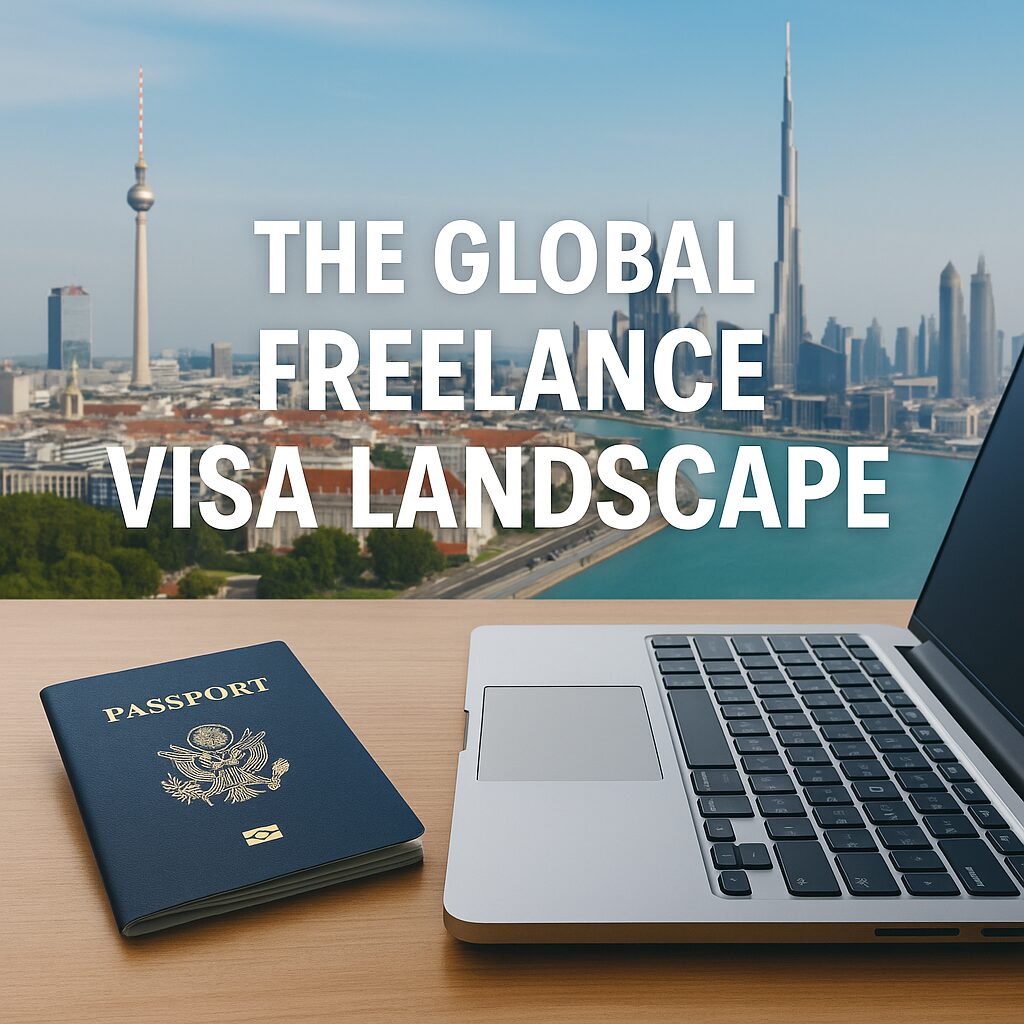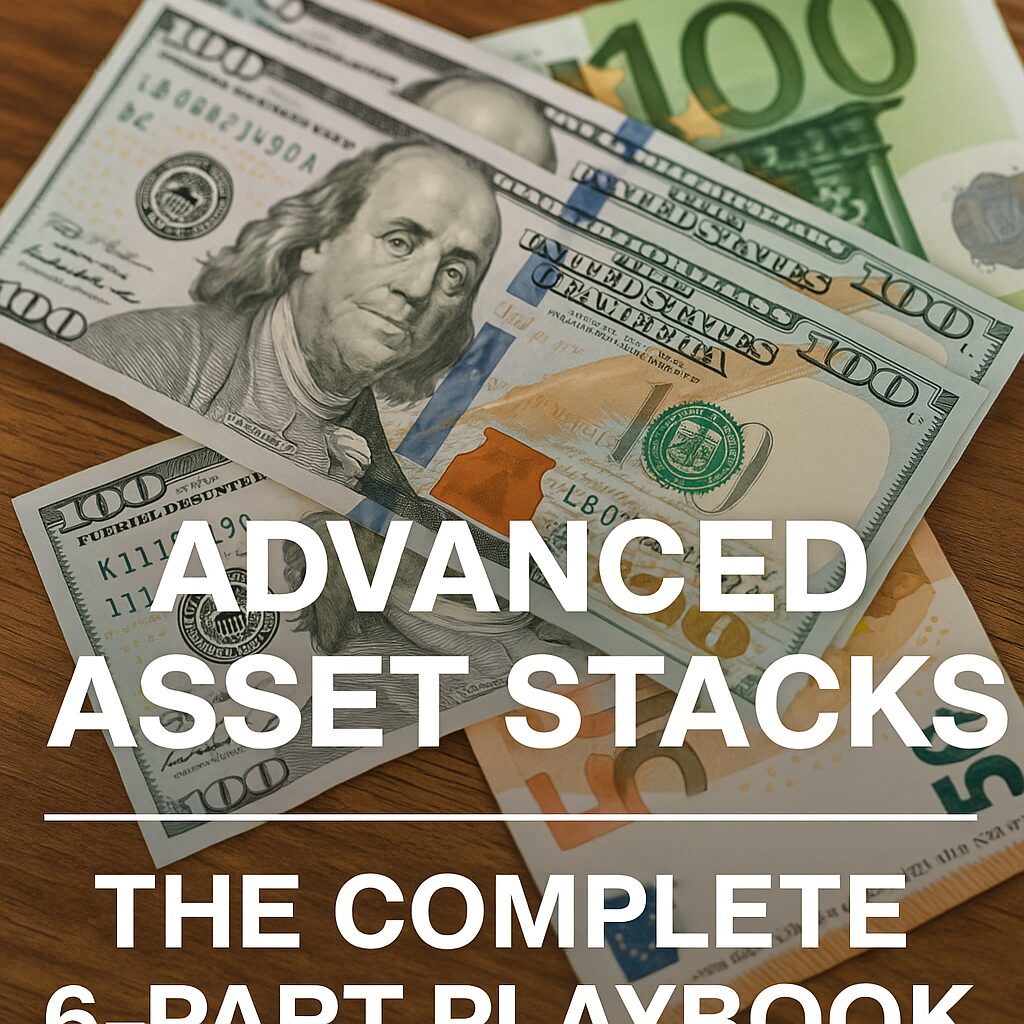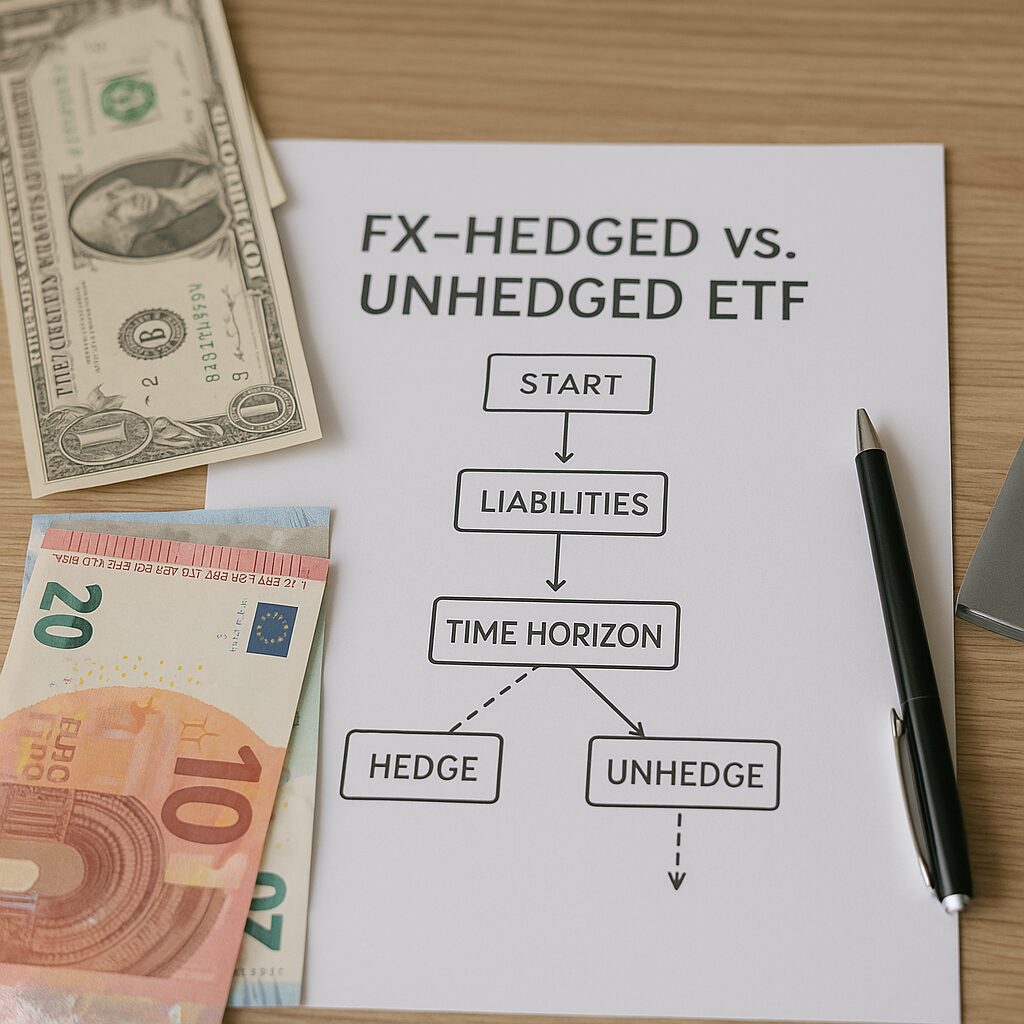Why Documentation Defines Success
Freelance visas are not won through charm or charisma. They are won through paperwork. Immigration officers do not evaluate your talent in abstract terms; they evaluate the evidence you present. That means contracts, invoices, tax filings, and proof of compliance.
A freelancer with world-class skills but no documentation will fail. Meanwhile, a modest professional with well-structured records can succeed. This is why building an immigration-friendly portfolio is essential. It is not simply about showcasing your work to clients; it is about structuring your professional life in a way that immigration authorities will accept.
This guide provides a full framework: how to build contracts, what proof to keep, how to organize records, and how to present them in visa applications.
1. The Anatomy of a Visa-Proof Contract
Contracts are the backbone of a freelancer’s portfolio. Without them, income claims collapse.
1.1 Essential Clauses
- Parties Identified Clearly: Full legal names and addresses of both client and freelancer.
- Service Description: Specific deliverables (e.g., “website design,” “tax consulting report”).
- Payment Terms: Currency, amount, payment method, due dates.
- Duration: Contract length or recurring service period.
- Remote Work Statement: Clause confirming services are delivered online and client is abroad.
1.2 Red Flags to Avoid
- Vague service descriptions (“general consulting”).
- Cash payments without bank transfer proof.
- No client signature or stamp.
1.3 Case Evidence
- Germany: Applications often rejected if contracts lack local demand evidence. Adding a clause that shows demand from German-based businesses strengthens the case.
- Portugal: Officers prefer contracts in English or Portuguese with notarized translations.
2. Proof of Income: Beyond Contracts
Contracts are only the first layer. Immigration requires proof that money actually flows.
2.1 Core Documents
- Invoices: Sequentially numbered, consistent with contracts.
- Bank Statements: Showing deposits matching invoice amounts.
- Payment Processor Receipts: PayPal, Stripe, Wise, etc.
- Tax Returns: Linking declared income to bank records.
2.2 Evidence Hierarchy
- Primary Proof: Tax returns, notarized contracts.
- Secondary Proof: Bank statements, invoices.
- Supporting Proof: Client testimonials, email trails.
2.3 Case Example
- Spain Nomad Visa: Applicants required to show not only contracts but also last 6 months of bank statements proving consistent inflows.
3. Portfolio Structure: Immigration Edition
Unlike a client portfolio, an immigration portfolio is an evidence binder.
3.1 Recommended Folder Structure
- 01_Contracts (organized by client, with translations)
- 02_Invoices (numbered, matching contracts)
- 03_BankStatements (highlighting income inflows)
- 04_TaxProof (returns, compliance letters)
- 05_ClientLetters (recommendations, demand evidence)
- 06_MiscProof (certificates, awards, press mentions)
3.2 Digital Tools
- Cloud storage (Google Drive, Dropbox, OneDrive).
- PDF merge and annotation software.
- Digital signatures (DocuSign, HelloSign).
3.3 Submission Tips
- Always translate contracts into host country’s official language.
- Use apostilles or notarization for credibility.
- Present documents in chronological order.
4. Proof of Compliance: Taxes and Regulations
Immigration officers worry about tax evasion. You must demonstrate compliance.
4.1 What to Show
- Filed tax returns (even if foreign income is tax-exempt locally).
- Accountant letters verifying compliance.
- Double-taxation treaty certificates (if relevant).
4.2 Risk Areas
- Inconsistent tax declarations vs. bank deposits.
- Large unexplained transfers.
- Gaps in income documentation.
4.3 Case Example
- Estonia: Applicants must declare foreign income even if taxed elsewhere. Officers check consistency between contracts, invoices, and bank flows.
5. Client Letters and Recommendations
Client letters serve two purposes: proof of global demand and professional credibility.
5.1 Content of a Strong Letter
- Client identity (company name, country).
- Service description.
- Statement of satisfaction.
- Confirmation of remote nature of work.
5.2 Format
- On company letterhead.
- Signed and dated.
- Translated if necessary.
5.3 Case Evidence
- Germany: Freelancers often submit 2–3 letters from German companies to prove local demand.
- Korea (F-2-7): Points system rewards “professional achievements,” including client testimonials.
6. Immigration Portfolio as a Wealth Asset
An immigration-friendly portfolio is not just paperwork; it compounds value over time.
6.1 Advantages
- Can be reused across multiple applications.
- Strengthens access to international banks.
- Builds credibility for high-value clients.
6.2 Long-Term Strategy
- Update portfolio every 6 months.
- Maintain income continuity — avoid gaps longer than 2 months.
- Add achievements: publications, certifications, awards.
7. Common Mistakes and How to Avoid Them
- Mistake 1: Submitting contracts in only one language.
- Solution: Provide certified translations.
- Mistake 2: Mixing personal and business bank accounts.
- Solution: Use dedicated business accounts.
- Mistake 3: Missing tax documentation.
- Solution: Hire cross-border tax professionals early.
- Mistake 4: Disorganized files.
- Solution: Follow strict folder naming conventions.
- Mistake 5: Overestimating income without proof.
- Solution: Only declare what you can document.
8. Practical Checklist
Before Applying for a Visa, Ensure You Have:
- At least 6–12 months of contracts with international clients
- Invoices matching contract amounts
- Bank statements confirming income flow
- Filed tax returns or accountant letters
- Client recommendation letters
- Health insurance policy
- Clean background check
- Translations and notarizations prepared
9. Case List
- Case: Germany — Designer rejected due to missing contract translations; accepted after notarized documents submitted.
- Case: Portugal — Writer approved with $1,800/month income because portfolio included invoices and bank proofs.
- Case: Spain — Consultant failed because tax returns did not match declared bank inflows.
- Case: Dubai — Freelancer approved after showing PayPal and Stripe receipts linked to invoices.
- Case: South Korea — IT professional gained F-2-7 residency after submitting detailed portfolio of projects and client letters.
Conclusion: Your Portfolio = Your Immigration Weapon
Immigration success depends on documentation, not luck. By building an immigration-friendly portfolio, freelancers transform their work history into a visa-ready, compliance-proof, wealth-building asset.
When governments see structured contracts, consistent income, tax compliance, and client demand, they do not see risk — they see value. And that value becomes your ticket to global residency, mobility, and long-term financial freedom.
📌 English Case List
- Germany — Designer success with translated contracts.
- Portugal — Writer’s approval with invoices + bank proofs.
- Spain — Consultant’s rejection due to inconsistent tax filing.
- Dubai — Freelancer approved via PayPal + Stripe receipts.
- South Korea — IT professional’s residency through structured portfolio.
📌 Next Article Preview
In the next part, we shift from paperwork to skills. Even if your contracts and bank statements are perfect, your profession must scale abroad. Immigration officers look at whether your skills have global demand and compounding potential.
👉 Without this knowledge, you risk locking yourself into a niche that qualifies for visas today but fails to grow wealth tomorrow. The next article uncovers the digital skillsets that scale internationally — SEO, paid ads, app development, fintech freelancing, and more.
